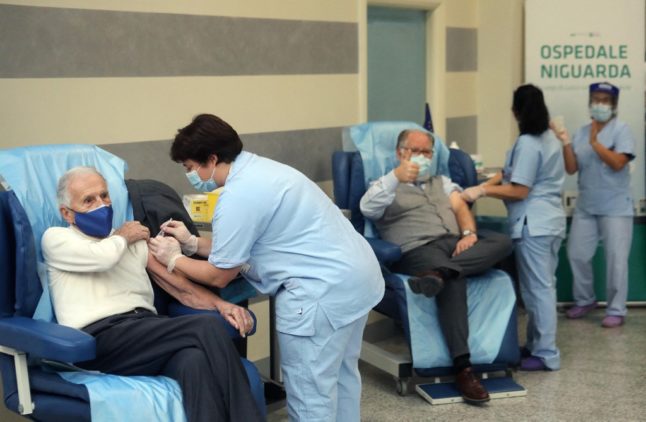Austria might be out of lockdown but that doesn’t mean the pandemic is over – not yet anyway – with experts warning of a wave of Omicron infections in the new year.
Here’s what could happen with the pandemic in 2022.
Early 2022 expected to be dominated by Omicron
Austria’s Covid forecast consortium believes the Omicron variant will become dominant in Austria in mid-January, while the country will see record high infection rates by the end of the month.
With Omicron able to spread between two and three times as fast as Delta, the commission assumes “that the Omicron variant will become dominant within a few weeks and, if the increase continues unchecked, could exceed the previous high of daily new infections in January 2021”.
READ MORE: Austria tightens Covid measures in response to Omicron spread
The commission however said that hospitalisation rates were likely to be lower due to the fact 70 percent of the public now are either fully vaccinated (including booster) or have recently recovered from the virus.
On Wednesday evening, Katia Wagner from Kronen Zeitung TV moderated a panel of experts about Covid-19, and they all agreed January could be a tough month.
Virologist Norbert Nowotny warned people to be especially careful during the first few weeks of 2022 due to the increased risk of infection from the Omicron variant – even in vaccinated people.
Nowotny said: “This will be the highest wave we have ever had. We have to go through it.”
However, epidemiologist Hans-Peter Hutter said that Omicron is less virulent and called for calm, as opposed to spreading “poison” through panic. Hutter also said an Omicron wave should not overload the healthcare system as infections will be milder.
This aligns with recent research from the UK that suggests Omicron is not as dangerous as previous variants, like Delta, with the risk of hospitalisation 40 percent lower.
FOR MEMBERS: EXPLAINED: What will change about life in Austria in 2022?
Despite these findings though, crisis prevention expert Herbert Saurugg raised concerns with the panel that if many people become sick and can’t work, there could be a risk to critical infrastructure in Austria.
As a result, Saurugg predicts supply chain bottlenecks could start to appear in the coming days and advises households to have a supply of food, water and medication for 14 days.
Additionally, virologist Nowotny is urging the Austrian Federal Government to prepare for a new wave of infections as he believes unreported Omicron cases could be ten times higher.
Could 2022 be the year the pandemic ends?
Thankfully, there is some good news (and we definitely need it).
Once the predicted Omicron wave has passed in early 2022, Nowotny expects Covid-19 to become endemic in Austria, which means the disease will become a part of life and will no longer be a crisis due to a milder infection in most people.
If this happens, Nowotny believes that by autumn 2022 the pandemic could be coming to an end.
This is a view echoed by experts around the world, including Microsoft co-founder and billionaire health philanthropist Bill Gates who recently published an article predicting Covid-19 will become endemic in most parts of the world next year.



 Please whitelist us to continue reading.
Please whitelist us to continue reading.
Member comments